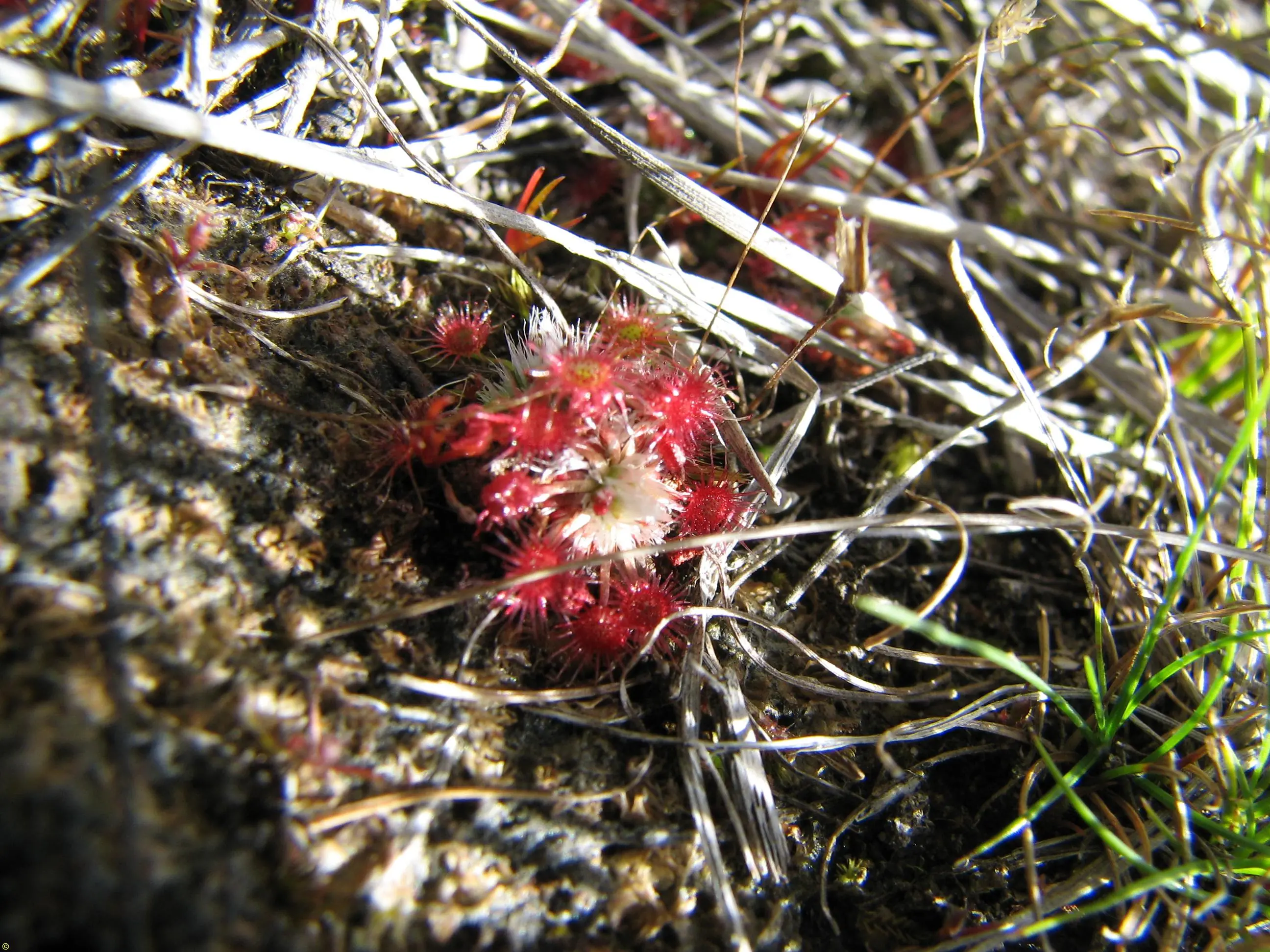Scientific Name: Drosera pygmaea
Common Name: dwarf sundew
Family Classification (Clade): Eudicots
Family: Droseraceae
Form Description: Tiny, flat basal rosette herb measuring 1-1.5cm in diameter. Numerous red leaves with glandular hairs on the upper surface, 1-2mm in diameter.
Flowers: Solitary, with four petals.
Fruit: Capsule
Municipality
Plant Communities
Habitat Notes
Widespread and frequent in peaty heaths from sea level to about 1200m above sea level.
General Notes
Self pollinates, and is one of the easiest sundews to grow. Propagate from seed, leaf cuttings or gemmae, which are small vegetative buds formed on the petioles of all pygmy droseras. Capillary watering of plants is recommended. Stand pots in a saucer of water and position in moderately high light. If situated in close proximity to other pot plants, Drosera pygmaea may spread and dominate other plants.
Propagation Calendar
-
Flowering Month
Jan Feb Mar Apr May Jun Jul Aug Sep Oct Nov Dec -
Seed Collecting Month
Jan Feb Mar Apr May Jun Jul Aug Sep Oct Nov Dec -
Sowing Month
Jan Feb Mar Apr May Jun Jul Aug Sep Oct Nov Dec -
Cutting Month
Jan Feb Mar Apr May Jun Jul Aug Sep Oct Nov Dec
Propagation Method
Seed Information
Seed Collection
Seed dust-like, black when ripe.
Cutting & Division Information
Can be propagated by leaf and root cuttings, or gemmae. In this species, the gemmae break off as they are formed, and accumulate into a pile over the centre of the parent plant before being dispersed by water. Plant seed or gemmae in mixture of half peat and half sand, keep moist but not wet, and do not fertilise.
